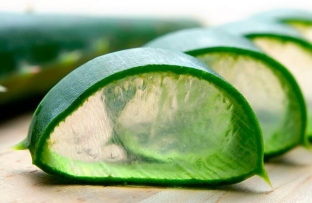At present, the beauty market offers a huge number of different cosmetic products for correcting facial and body imperfections. Almost every day, new products appear that have more and more improved composition and formulas, and since patients do not always understand how certain components in cosmetics work, they often turn to specialists with a request to choose the right product for them. That is why cosmetologists must have the necessary knowledge about the properties of active ingredients in cosmetics. Today estet-portal.com talks about the beneficial properties and mechanism of action of allantoin in a cosmetic composition.
How does allantoin work in skin care products
Many modern cosmetics contain a substance called allantoin.
Allantoin – it is a non-toxic, hypoallergenic substance that is obtained as a result of the aerobic breakdown of purine nucleotides.
For the first time this substance was found in the embryonic tissues of birds, and got its name from allantois – the embryonic respiratory organ of birds, reptiles and mammals. Allantoin, which is part of cosmetics, is obtained both from natural raw materials and biochemical synthesis routes. Its main source is plants, such as aloe, but allantoin is also found in the urea of cattle, shellfish and insects.
Allantoin:
- allantoin in cosmetics: useful properties;
- in what cases can the use of products with allantoin be recommended;
- how does allantoin work in cosmetics.
Allantoin in cosmetics: useful properties
Allantoin as part of cosmetics has a number of useful properties, among which are:
- wound healing property – when applying products with allantoin to the skin, there is a rapid regeneration of the skin;
- bactericidal property – allantoin has anti-inflammatory and antimicrobial effects;
- antioxidant property - allantoin is able to resist the effects of free radicals;
- conditioning property – the substance has a moisturizing effect;
- exfoliating property – allantoin effectively removes dead skin cells, prevents the appearance of comedones and clogged pores;
- anti-irritant property - allantoin copes well with irritation, softens and nourishes the skin.

In what cases can the use of products with allantoin be recommended
The use of cosmetic products with allantoin may be recommended by a cosmetologist in the following cases:
- for various skin irritations;
- when the skin is damaged by ultraviolet rays;
- to improve the tone of flabby, tired skin;
- for moisturizing and softening the skin;
- for the correction of fine wrinkles resulting from insufficient saturation of the skin with moisture;
- for correction of age-related skin changes.
Allantoin is also used not only in cosmetics, but also as an ingredient in various dermatological ointments, gels, aerosols and sprays for the treatment of skin diseases.
How does allantoin work in cosmetics
In the composition of cosmetics, allantoin acts as a multifunctional component, but its basic property is participation in the process of new cell formation through cell division and reproduction. Thus, after applying the agent with allantoin to the skin, the substance begins to stimulate cell proliferation, due to which their rapid regeneration occurs. In order to see the unique properties of allantoin, even a small concentration of it in the composition of a cosmetic preparation is enough.
Allantoin has many positive properties, it is a hypoallergenic and non-toxic substance that effectively eliminates skin imperfections.
This valuable ingredient is found in many cosmetic serums, creams and emulsions, and is even used in men's aftershave products for its ability to prevent skin irritations. Thank you for staying with estet-portal.com. Read more interesting materials on the site in the “Cosmetology” section.
You may also be interested in: “Preservatives in cosmetics: a reasonable balance of harm and benefit”.







Add a comment